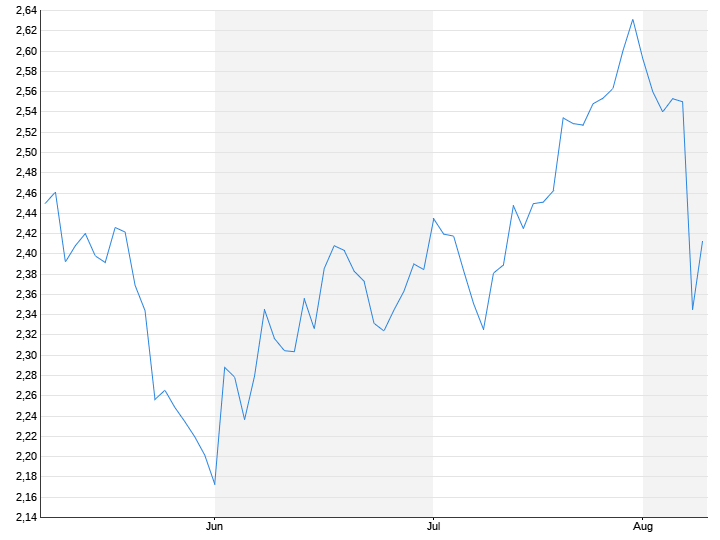Profit Submission Limit
Rome reassures banks a bit with tax limit
8/9/2023 3:22 p.m
Even some ministers in the cabinet were caught off guard by the Italian head of government’s decision to impose a special tax on banks. The surprise for investors is even greater. Financial stocks rush into the red on the stock exchange. Rome is now trying to calm things down – but is sticking to the plan.
Italy’s government has set an upper limit for its special tax on bank profits. Italian bank stocks then rallied after the announcement of a 40% excess profit tax the day before had caused severe market turmoil. The Ministry of Finance announced on Tuesday evening that the revenue from the special tax would not exceed 0.1 percent of the institute’s total assets. This calmed the financial market. The share prices of Italian institutes such as Intesa Sanpaolo, Banco BPM and UniCredit gained between 3.3 and 4.4 percent at times.
The right-wing government of Prime Minister Giorgia Meloni wants to use the tax to skim off profits that financial institutions bring in with the help of interest rate developments. The tax, which will be levied once in 2023, is expected to generate almost three billion euros, people familiar with the process said.
The government had criticized the gap in interest rates for loans and interest rates for savings in favor of the banks. In the course of the series of interest rate hikes by the European Central Bank (ECB), institutions had made their loans more expensive, but tended to be more cautious about interest on savers’ deposits. According to estimates by the major Swiss bank UBS, profit erosion from the tax at private customer banks will probably range from 6 percent for UniCredit to 15 to 16 percent for Banco BPM.
Government officials defended the plan. “Some bankers regret that, but we’re talking about an industry that makes billions and billions in profits without lifting a finger,” Deputy Prime Minister Matteo Salvini told RAI. The redistribution of a small part of these profits is economically and socially justified. Salvini also confirmed the government’s plans to use the proceeds to support mortgage borrowers and those on low incomes and small pensions.
Other European countries such as Spain and Hungary have already introduced special taxes for banks. But in Italy, according to analysts, the government decision caught the financial market unprepared – which damaged investor confidence. Italy’s government had also brought such a bank tax into play. But she finally seemed to want to drop the plans. The decision in favor of the tax then came as a surprise even to ministers who came together for a cabinet meeting on Monday evening.
